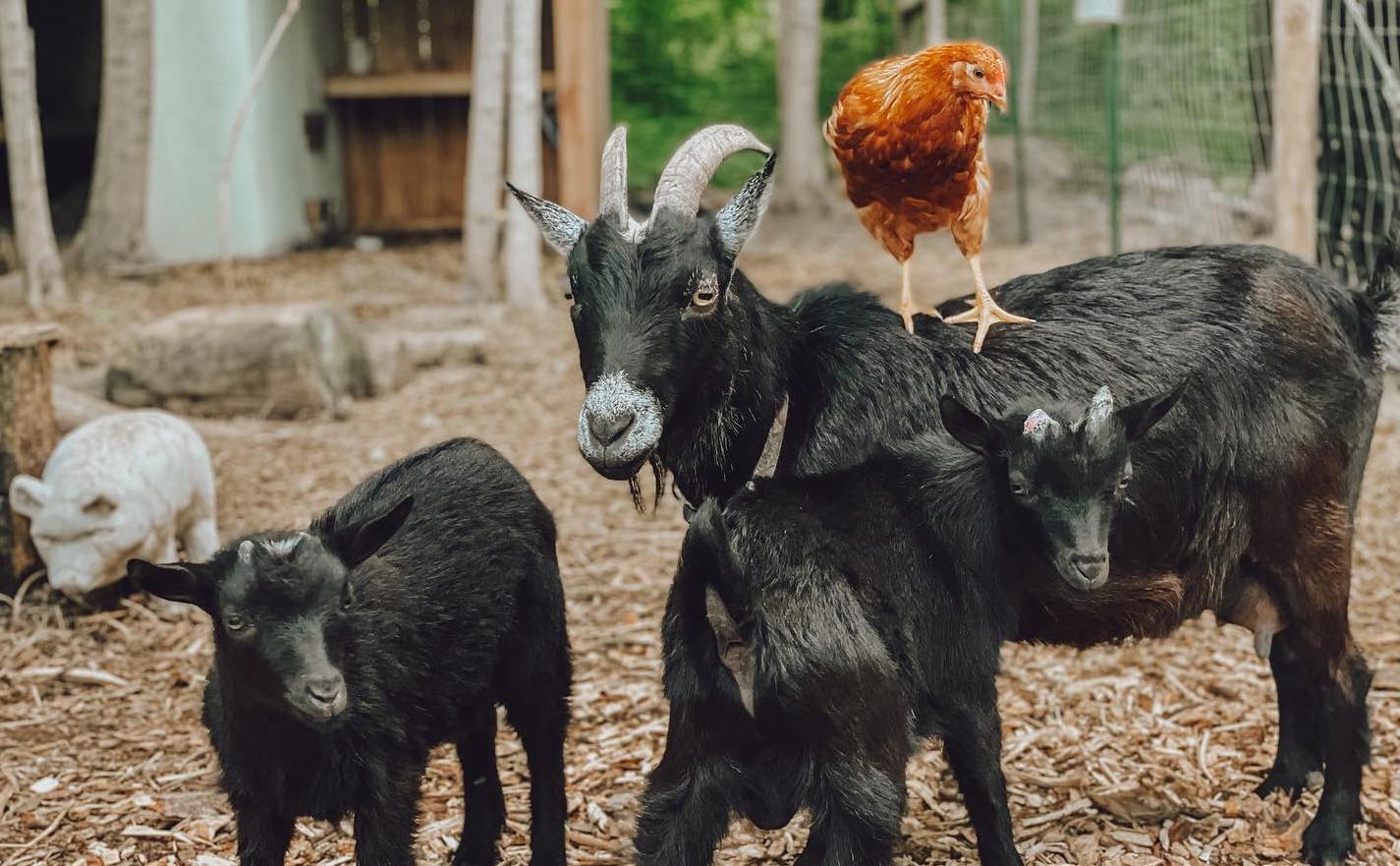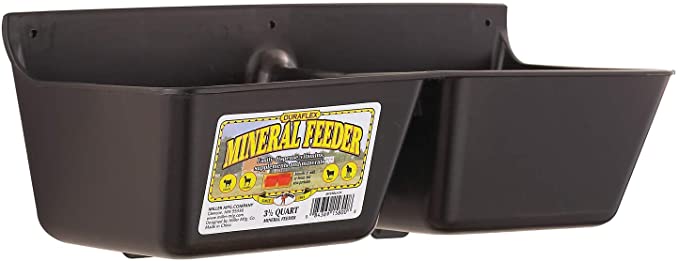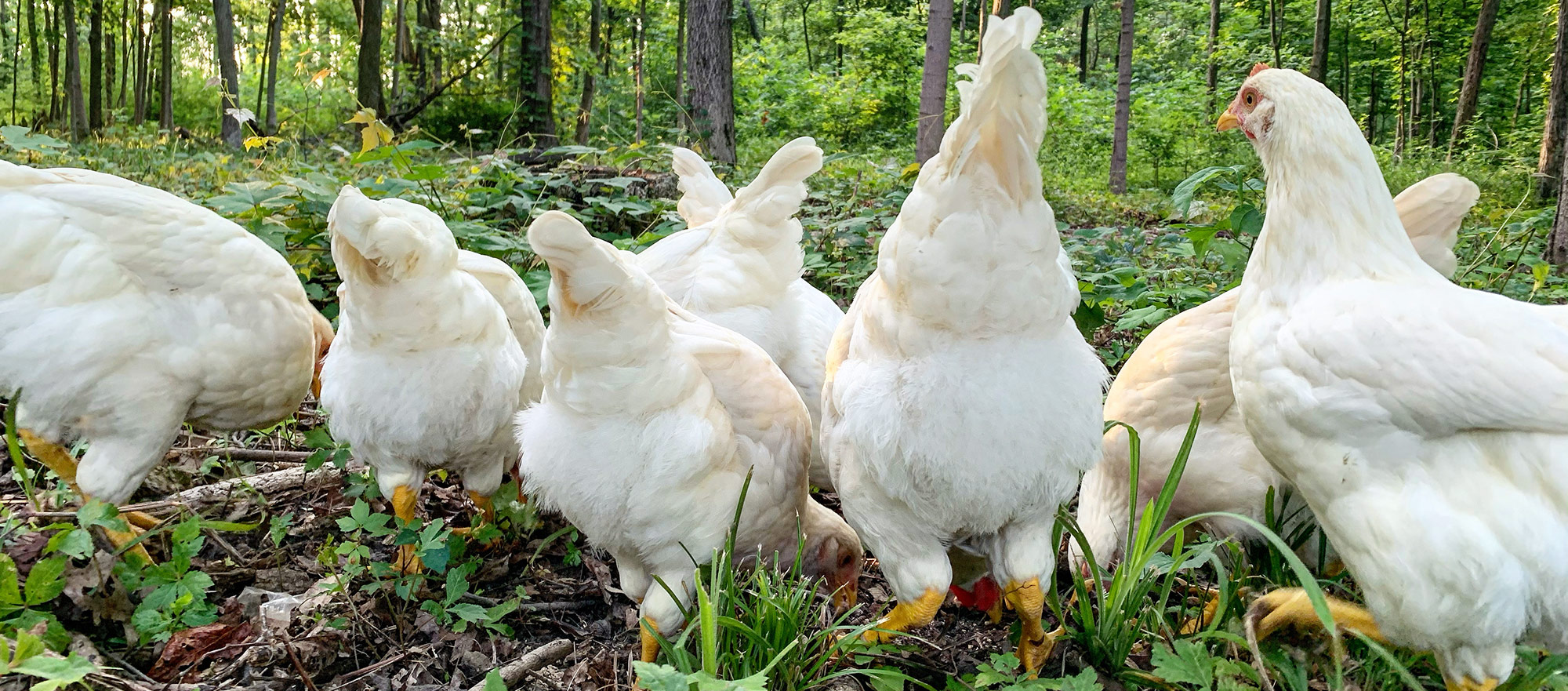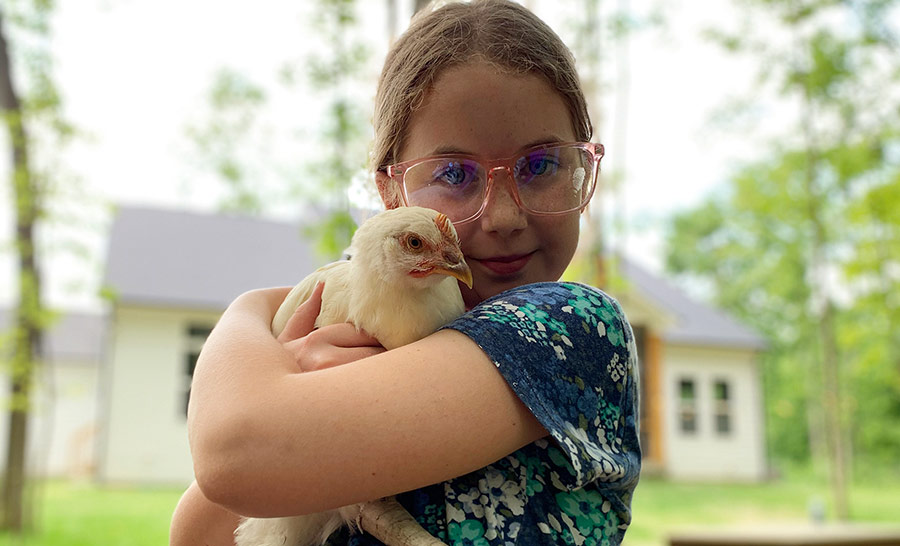If you would have asked me if I’d ever own goats, I would have looked at you like you had horns coming out of your head.
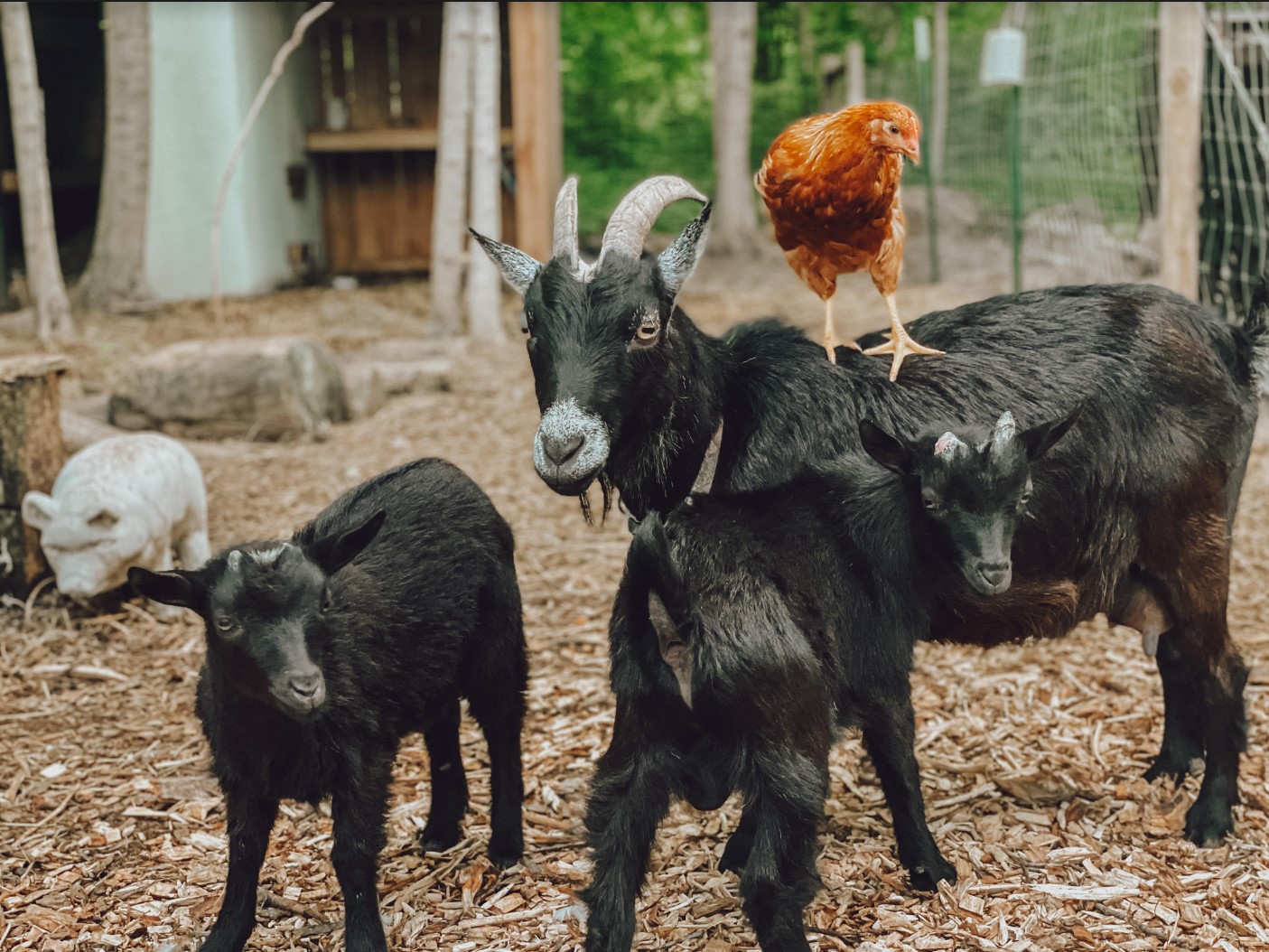
However, I happen to have very persuasive children who met the requirments that I thought would take a miracle:
- They got along for a month.
- They did their chores for a month without being prompted and didn’t complain.
- They researched everything you need to know to raise goats.
So, one Christmas two years ago, goats entered our lives. I’ve since discovered they are a lot like dogs but with perhaps a bit more personality. Goats are easy to take care of and yet . . . not so easy.
Why do I say they aren’t easy? Well, they thrive on routine (of which I avoid like the plague, as a general rule) and it is paramount that you establish a consitent feeding and supplementing routine. Their rumen counts on it.
But once you get your goats settled in, they provide hours of fun, entertainment, and overall improve your emotional wellbeing. I call them medicine pets.
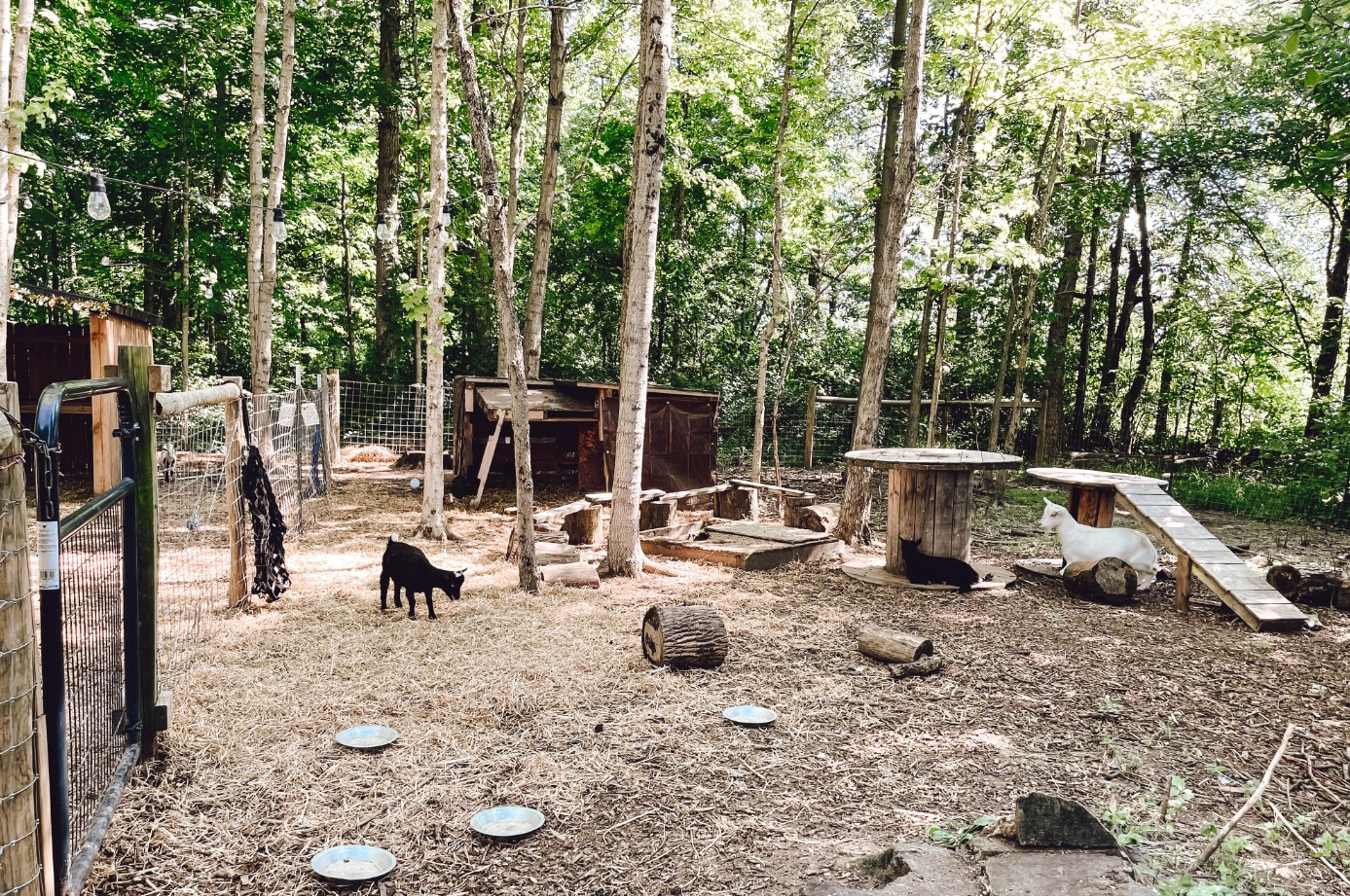
There are many websites, books and mentors that you can learn from. So this post will serve more as a peek into our routine and resources that I think are a must.
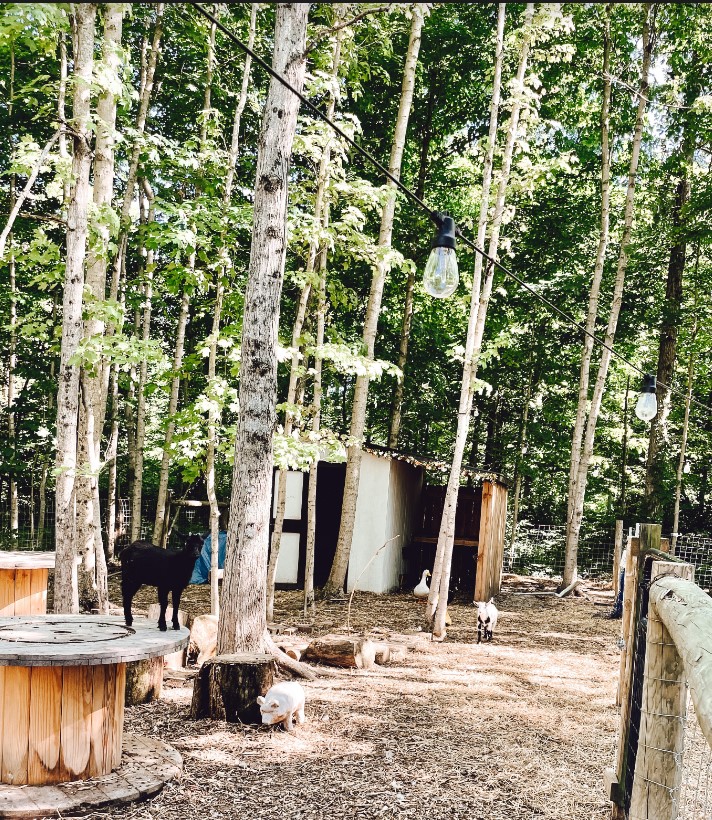
I am assuming you are nearly ready to go — meaning you have a shelter, bedding (which is simply straw), reliable source of alfalfa hay, water buckets, and time to snuggle. We had none of these things completed or ready when our herd arrived! So don’t be like us!
If you like the goat cabana, you can grab the plans here.
Goat Books to Have on Hand
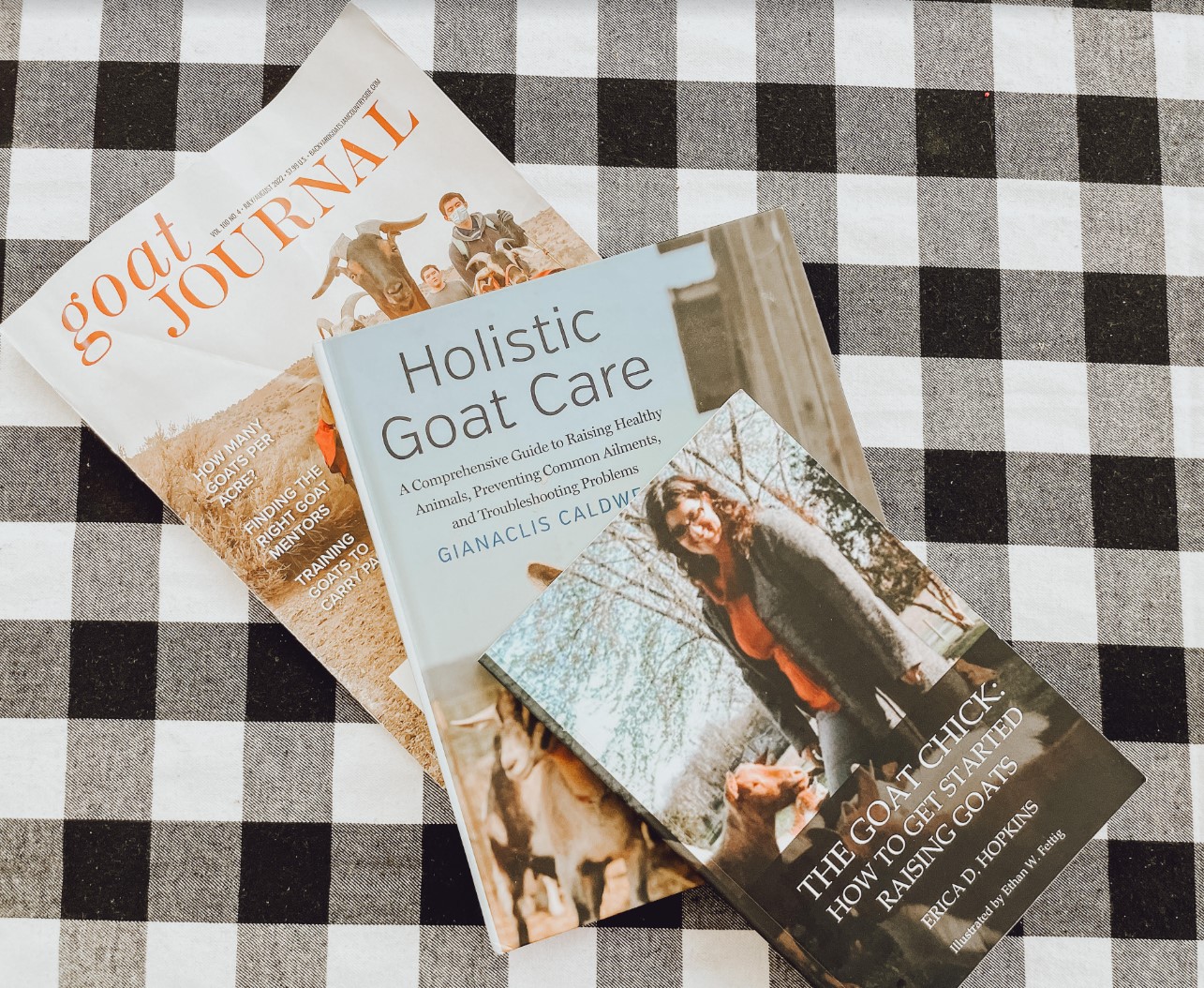
- Holistic Goat Care by Gianaclis Caldwell
- So You Want to Get Goats by Kinsey Cornelison
- The Goat Chick: How to Get Started Raising Goats by Erica D. Hopkins
- Goat Journal magazine
When Your Goat Arrives
Like humans, the best healthcare for goats is proactive / preventative healthcare. This begins with good nutrition and supplementation. A happy goat gut is not only a happy goat but a strong immune system for your furry friend.
The first week of owning goats, we nearly lost our now beloved buck, Mando.
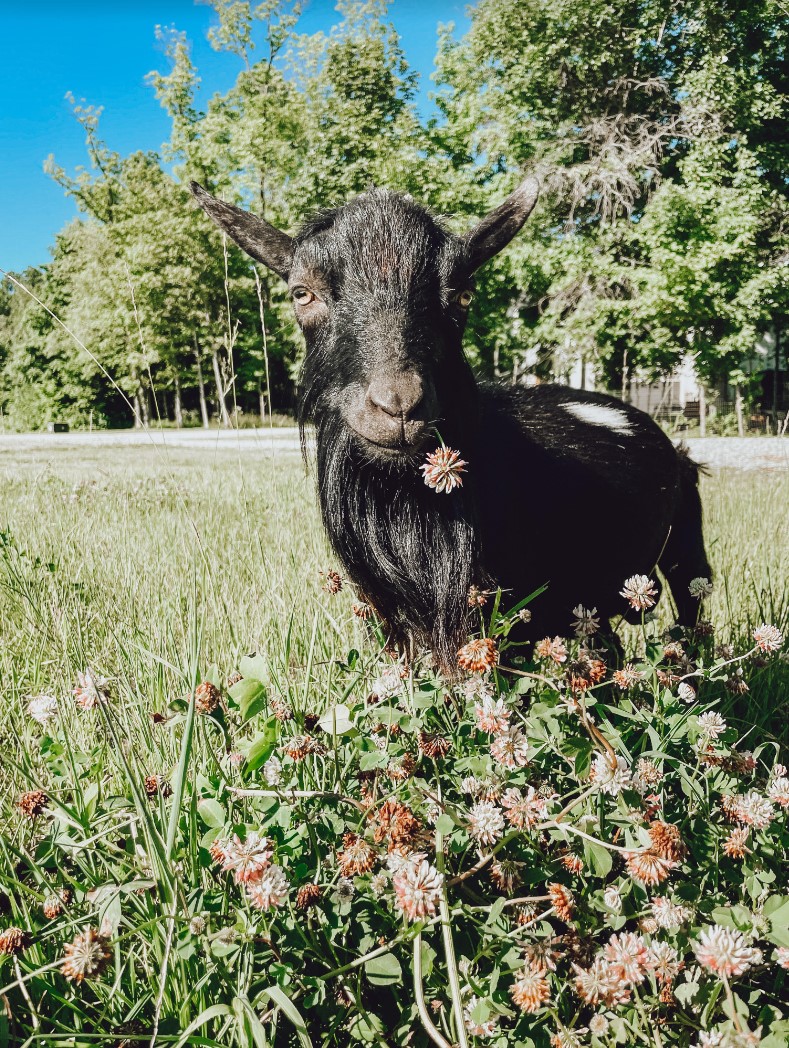
Mando became severly stressed after moving to a new home and being seperated from his mom for the very first time. He ended up testing positive for barber pole and nearly died.
So when you first get your goats, make sure to support their gut health ASAP.
As a general rule, we give our goats a pinch of this Herbal Dewormer daily. Some would say once a week. Our goats live in the woods, which is actually a win, and we don’t have some of the same issues that pasture grazed goats have. However we do have a rainy season — which means our woods turns into a wetland. So there are certain times of the year that we have to be more proactive due to the damp conditions. Hoof care becomes very important during the rainy season for us. We also receive wood chips from a local arborist to control the amount of poop and moisture on the ground.
Using essential oils to calm your goats when they first arrive is very helpful. When goats have high emotional levels, it compromises their gut health. Our goats responded well to Valor, Stress Away, and Lavender. The cheapest way to get these oils is with this kit. You will also benefit from using the diffuser and oils! We actually allow them to choose their oil that we brushed down their backs. They choose it typically by smelling one oil cap more than another. You will place a drop on your hands, rub your hands together, and stroke down their fur. It significantly reduced their feelings of anxiousness that they appeared to be exhibiting.
Learn how to use essential oils on animals in this video.
The First Supplement
When you goat first arrives, I would give the Hoeggar Herbal Dewormer to them 2-3 times a day for 3 days and then back off to once a day or once a week (whatever you decided). I’d also throw in a capsule of Life 9 probiotic into their morning feed plate too. You will want to watch for signs of lethargy, lack of eating or drinking, runny or clumpy poop, and depression. If you are ever concerned, call your goat mentor or a vet. Do not take chances.
Stay tuned and I will have a post on how to make Hoeggar Herbal Dewormer balls. But for now this is a great resource.
FAMACHA Score
While we are at it . . . it’s important that you know what a FAMACHA score is, because your vet or mentor is going to ask you when you express your concern.
The FAMACHA score is a great way to tell how your goat is doing.
Goat Supplement Routine
The best way to demonstrate how we supplement our goats, in addition to free choice Alfalfa hay is to show you our feeding routine. Please watch this video to see our routine.
Supplement Supplies
These are the supplements you saw in the video.
- metal feed trays (as seen in the video)
- Mineral feeder
- Goat Minerals (this is in a tray for them to eat as they like, aka “free choice minerals” in the goat yard, sheltered from weather)
- baking soda (also “free choice” in the goat yard, sheltered from weather)
- Thorvin Kelp
- Alfalfa Pellets
- Black Oil Sunflower Seeds
- Dried Beet Pulp Shreds
- Herbal Dewormer
- Chaffhaye (this was not included in the video as we added this into the routine so that the goats were eating fermented food for proper digestion) We add a handful.
- free choice Alfalfa Hay — note that your wethers should have waited until they are 12 weeks old before they were castrated. If the procedure was done before they were 12 weeks, I do not recommend feeding them alfalfa. They can have kidney issues develop. Instead, just opt for a good hay. We typically purchase 15 bales of hay at a time because that is what fits in my son’s truck and our garage is currently the barn. We do have a hay field, but it has yet to grow in fully.
- Hay feeder (I like the Slow Feeder Extreme). If your goats are seperated, you will need 2-4 of these depending on how easy you want to make feeding.
- Water buckets (change their water 2 times a day, especially when it is hot outside). Consider using filtered water, or at the very least an attachment that will lower the iron content if you are on well water.
Emergency Supplies
- towels
- Nutri-Drench
- Bloat treatment
- Blood Stop
- Helichrysium (the best oil to help stop bleeding and heal wounds)
- anti-toxin (if you are opting to not do vaccines)
Other Supplies
- hoof trimmers
- Essential Oil Kit (these are the main products we use on or with our goats because we opt to not vaccinate and work at prevention rather than being reactive and “treating.”)
- sulfur powder that you brush into their fur to help with lice (using MSM or the Young Living Sulfurzyme powder found in the Essential Oil kit will help control the lice population)
Targeted Supplement to have on Hand
I watch our goats FAMACHA scores, poop, hoof health, tail, fur or lack of fur on their nose bridge, and body hair (shouldn’t look like they received a henna treatment and it should be shinny) closely to evaluate their health. If any of these changes then I research to figure out what is amiss.
- copper bolus (use when fur looks like henna or goat develops fishtail) We typically supplement every three months due to our high iron content, which inhibits copper uptake
- selenium / Vitamin E gel
- Vitamin B gel
- Vitamin A, D, E Gel (more optional)
- Ningxia Red
- Black Strap Molasses (I will mix copper and herbals in here to make herbal balls that are like a treat to the goats)
This should get you started. The targeted supplements are things to have on hand . . . so that you don’t find yourself running out in the middle of the night, when your goat is showing signs of stress. I don’t use these items regurally, but boy am I glad when I have them when there is a need.
Future Things to Consider
- milking stand (it makes trimming hooves easier)
- birthing / milking supplies
- renting your buck out for stud duties (he won’t mind)
- To disbud or not to disbud
Well, having these things on hand are going to set you up for SUCCESS!!!! Having goats is super fun. I love taking ours for walks and sitting a spell with one of them in my lap.
What questions do you still have?
